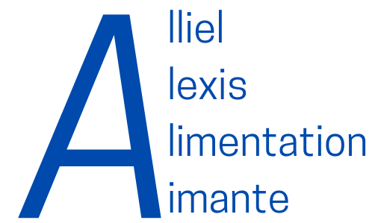Anorexia Nervosa: Compassionate Support for International Patients in Paris
Finding Help in a Foreign Land
Living with anorexia nervosa is challenging enough, but managing this eating disorder while navigating life as an expatriate or international student in Paris adds unique layers of complexity. Cultural differences, language barriers, and being far from familiar support systems can intensify the isolation that often accompanies this condition.
As a bilingual dietitian nutritionist specializing in eating disorders in Paris, I've witnessed how the expatriate experience can both trigger and complicate anorexia nervosa. The stress of adaptation, professional pressures in international environments, and the French cultural relationship with food can create perfect storm conditions for those vulnerable to eating disorders.
Yet, there is hope. With culturally sensitive, evidence-based treatment available in English, recovery is possible even while living abroad. My approach, developed through years of work with the international community in Paris and refined through my association with SOS Anor, provides a safe space where your struggles are understood in the context of your unique journey as an international resident of France.
Understanding Anorexia Nervosa: Beyond the Stereotypes
Defining the Disorder in a Cross-Cultural Context
Anorexia nervosa affects approximately 0.9% of the global population, transcending cultural boundaries while manifesting differently across cultures. It's characterized by persistent food restriction, intense fear of weight gain, and distorted body perception, but these symptoms can be influenced by cultural background and current environment.
Core Features Across Cultures:
Restrictive eating patterns that go beyond cultural dietary practices
Body image disturbance influenced by both home and host culture beauty standards
Fear of weight gain that persists despite medical consequences
Denial of illness severity often reinforced by cultural stigma around mental health
Warning Signs Often Missed in Expatriates:
Attributing food restriction to "adjusting to French cuisine"
Using busy international work schedules to skip meals
Social isolation masked as "cultural adaptation difficulties"
Excessive exercise justified as "exploring the city"
Hiding behind vegetarianism or food intolerances to avoid eating
Increased anxiety around French food culture and meal traditions
Types of Anorexia in the International Context
Restricting Type accounts for about 60% of cases. International professionals often hide behind work demands, using late meetings or travel to avoid meals. The high-achieving expatriate environment can normalize and even reward this behavior.
Binge-Eating/Purging Type affects 40% of those with anorexia. The stress of living abroad can trigger loss-of-control episodes, followed by compensatory behaviors. Access to different foods and eating alone more often can facilitate these patterns.
Atypical Anorexia is particularly relevant for internationals who may not appear underweight but experience all the psychological symptoms. Different body types across cultures and varying weight norms can make this form particularly invisible.
The Expatriate Factor: Unique Triggers and Challenges
Cultural and Environmental Triggers
The French Food Paradox: France's relationship with food can be triggering for those with eating disorders. The emphasis on pleasure in eating, long meals, multiple courses, and the social importance of food can overwhelm someone struggling with anorexia. Conversely, the French emphasis on moderation and not snacking can reinforce restrictive behaviors.
Professional Pressures: International work environments often demand perfection and long hours. The pressure to succeed as an expatriate, prove oneself in a foreign context, and manage work across time zones can fuel the perfectionism that underlies anorexia.
Social Isolation: Being away from family and longtime friends removes natural support systems. Making new friends while managing an eating disorder is doubly challenging. Many expatriates report using food restriction as a way to feel in control when everything else feels foreign and unpredictable.
Identity Confusion: Living between cultures can trigger identity questions that anorexia temporarily "solves" by providing a clear, albeit harmful, identity and focus. The eating disorder becomes a constant in a life full of changes.
Biological and Psychological Mechanisms
The Stress-Restriction Cycle: Expatriate stress triggers cortisol release, which can suppress appetite initially. This natural response can evolve into deliberate restriction, especially in those predisposed to eating disorders. The temporary sense of control this provides becomes addictive.
Neurobiological Changes: Research shows that starvation alters brain chemistry, affecting serotonin and dopamine systems. These changes can actually reduce anxiety temporarily in some individuals, reinforcing restrictive behaviors. For stressed expatriates, this can feel like a solution.
The Minnesota Starvation Study Relevance: This landmark study showed that even healthy individuals develop obsessive thoughts about food, ritualistic eating behaviors, and mood changes when restricted. For internationals already dealing with adaptation stress, these effects are amplified.
Treatment Approach: Culturally Sensitive Recovery
The Role of a Specialized Dietitian
As a dietitian working with international clients, my role extends beyond traditional nutritional counseling. I serve as a cultural bridge, helping you navigate recovery within the French healthcare system while respecting your cultural background and current life circumstances.
Initial Assessment Considerations:
Understanding your food culture of origin
Exploring how expatriate life has changed your eating patterns
Identifying specific triggers in your international lifestyle
Assessing support systems both locally and back home
Evaluating work and visa-related stressors
Nutritional Rehabilitation for Internationals: The refeeding process must account for your comfort with different foods. We work with what feels safe while gradually expanding. This might mean starting with familiar foods from your home country while slowly introducing French options, or vice versa.
Education and Myth-Busting: Many cultures have different beliefs about food and weight. We address these respectfully while providing evidence-based information. Understanding how French portion sizes, meal timing, and food choices can actually support recovery often provides relief.
Recovery Stages for International Patients
Phase 1: Crisis Stabilization If medical stabilization is needed, I help navigate the French healthcare system, coordinate with English-speaking doctors when possible, and ensure cultural needs are respected during treatment.
Phase 2: Building Therapeutic Alliance Trust is essential, especially when treatment happens in a second language or cultural context. We establish clear communication patterns and ensure you feel heard and understood, not judged through a cultural lens you don't share.
Phase 3: Deep Therapeutic Work We explore how expatriate life intersects with your eating disorder. This includes addressing perfectionism in professional settings, managing family expectations from afar, and finding identity beyond the eating disorder in your new home.
Phase 4: Sustainable Recovery Building a recovery-supportive life in Paris means creating new routines, finding community, and developing resilience for the unique challenges of international living.
Practical Strategies for International Patients
Daily Management Techniques
Navigating French Food Culture:
Start with familiar foods to ensure adequate intake
Gradually experiment with French cuisine as you feel ready
Use meal delivery services when shopping feels overwhelming
Find international grocery stores for comfort foods
Learn to communicate dietary needs without revealing your disorder
Managing Professional Demands:
Set boundaries around lunch breaks
Prepare talking points for food-centric work events
Use calendar blocking to protect meal times
Find allies who respect your recovery needs
Remember that taking care of yourself improves work performance
Building Support Systems:
Connect with English-speaking support groups
Use technology to maintain home country connections
Find a therapist who understands expatriate challenges
Build a local care team that communicates in English
Join non-food-focused expatriate communities
For Family and Friends Abroad
Supporting from a Distance:
Regular check-ins without being intrusive
Understanding the added challenges of living abroad
Avoiding comments about appearance on video calls
Offering practical support like researching local resources
Being patient with time zone differences and communication delays
If You're Local Support:
Learn about their cultural background regarding food
Don't assume their eating habits are just "cultural differences"
Offer practical help like accompanying to appointments
Include them in social activities that aren't food-centered
Be a bridge to French culture without pressure
The Path to Recovery: Hope for International Patients
Recovery from anorexia while living abroad is absolutely possible. In fact, some patients find that the fresh start and distance from triggering environments back home can facilitate healing. The key is finding culturally competent care that understands both eating disorders and the expatriate experience.
Statistics show that 50-70% of people with anorexia achieve full recovery with appropriate treatment. For internationals, success often depends on addressing both the eating disorder and the unique stressors of expatriate life. This integrated approach leads to more sustainable recovery.
The journey isn't just about weight restoration or normalized eating. It's about finding your place in a new culture while healing your relationship with food and your body. It's about building a life in Paris that nourishes you physically, emotionally, and socially.
Many of my international patients have not only recovered but have found that the challenge of overcoming anorexia while abroad has made them stronger and more resilient. They've built international support networks, developed cross-cultural coping skills, and discovered strengths they didn't know they had.
Recovery might look different for you than it would in your home country, and that's okay. The goal is to create a sustainable, fulfilling life wherever you are. With appropriate support, cultural sensitivity, and evidence-based treatment, you can overcome anorexia and thrive in your international life.
Living and eating are two sides of the same coin. Lighten your relationship with food and free yourself from what hinders you!
📚 Recovery Journey: Learn about renutrition protocols and discover if recovery is possible after 10 years. Families can find support in our guide for relatives.
📚 SOURCES AND REFERENCES


Vivre et manger sont les deux faces de la même pièce
Lighten your relationship with food and free yourself from what hinders you!
+33 6 22 41 55 21
© 2024. All rights reserved.
RPPS : 10007258733
N° ADELI : 75 95 0878 1
